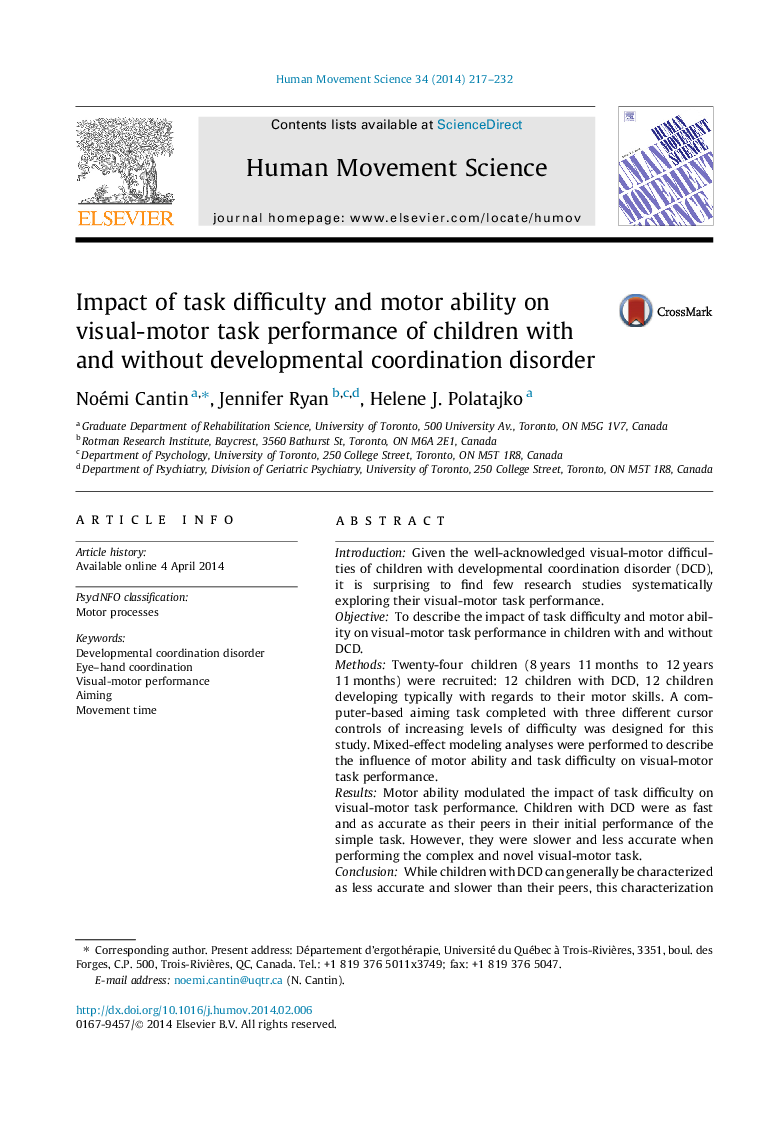| Article ID | Journal | Published Year | Pages | File Type |
|---|---|---|---|---|
| 928425 | Human Movement Science | 2014 | 16 Pages |
•Task difficulty has an impact on visual-motor task performance in children.•Motor ability modulates the impact of task difficulty in children with DCD.•Children with DCD were fast and accurate in their performance of the simple task.•They were slower and less accurate when performing the complex novel task.
IntroductionGiven the well-acknowledged visual-motor difficulties of children with developmental coordination disorder (DCD), it is surprising to find few research studies systematically exploring their visual-motor task performance.ObjectiveTo describe the impact of task difficulty and motor ability on visual-motor task performance in children with and without DCD.MethodsTwenty-four children (8 years 11 months to 12 years 11 months) were recruited: 12 children with DCD, 12 children developing typically with regards to their motor skills. A computer-based aiming task completed with three different cursor controls of increasing levels of difficulty was designed for this study. Mixed-effect modeling analyses were performed to describe the influence of motor ability and task difficulty on visual-motor task performance.ResultsMotor ability modulated the impact of task difficulty on visual-motor task performance. Children with DCD were as fast and as accurate as their peers in their initial performance of the simple task. However, they were slower and less accurate when performing the complex and novel visual-motor task.ConclusionWhile children with DCD can generally be characterized as less accurate and slower than their peers, this characterization needs to be specified and qualified; it is probably best not applied to a well-learned, simple task.
